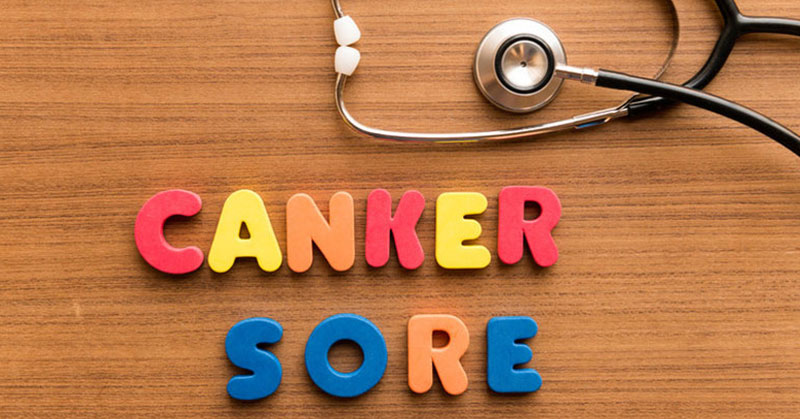If you’ve ever experienced some type of sore inside or around your mouth, you know that it can be not only uncomfortable but also somewhat alarming if you don’t know what the sore is or why you have it. Fortunately, most mouth sores are relatively minor, and many clear up on their own. What follows is a brief description and explanation of some of the most common types of mouth sores:
- Canker sores – Often forming on the tongue, lips, gums, or inside the cheek, canker sores are one of the most common types of mouth sores. Usually, a canker sore has a white or yellow center and a red border. While canker sores are not exactly attractive, and can be quite uncomfortable, they are not contagious.
- Cold sores – If you notice a sore that is made up of a cluster of red, raised blisters on the outside of your mouth (usually around the lips and/or under the nose), you probably have a cold sore. Cold sores are somewhat painful and are extremely contagious.
- Thrush – This fungal infection of the mouth (also referred to as candidiasis), which appears as white spots inside the mouth and sometimes on the tongue, forms from too much yeast inside the mouth. People with thrush usually have a sore throat and difficulty swallowing.
- Abscessed tooth – If you notice a swollen area of your gums that is accompanied by a severe toothache, you probably have an abscessed tooth, which occurs when a bacterial infection spreads to the nerve of a tooth. Abscesses are usually very painful and are often accompanied by hot/cold sensitivity, fever, and/or swollen lymph nodes.
While it’s true that most mouth sores go away on their own after a certain period of time, others definitely need to be treated by a dentist or doctor. Fungal or bacterial infections (i.e., thrush and an abscessed tooth) will only get worse if left untreated, so it’s important to call your dentist right away if you notice symptoms related to these conditions. Although there are over-the-counter treatments for both canker and cold sores, your doctor or dentist may be able to prescribe more effective treatment options. And if you notice any type of mouth sore or lump in or around your mouth that does not go away on its own or after treatment, tell your dentist or doctor right away. Although not common, these could be an indication of a much more serious condition.



2 Comments
Can you be more specific about the content of your article? After reading it, I still have some doubts. Hope you can help me.
I don’t think the title of your article matches the content lol. Just kidding, mainly because I had some doubts after reading the article.